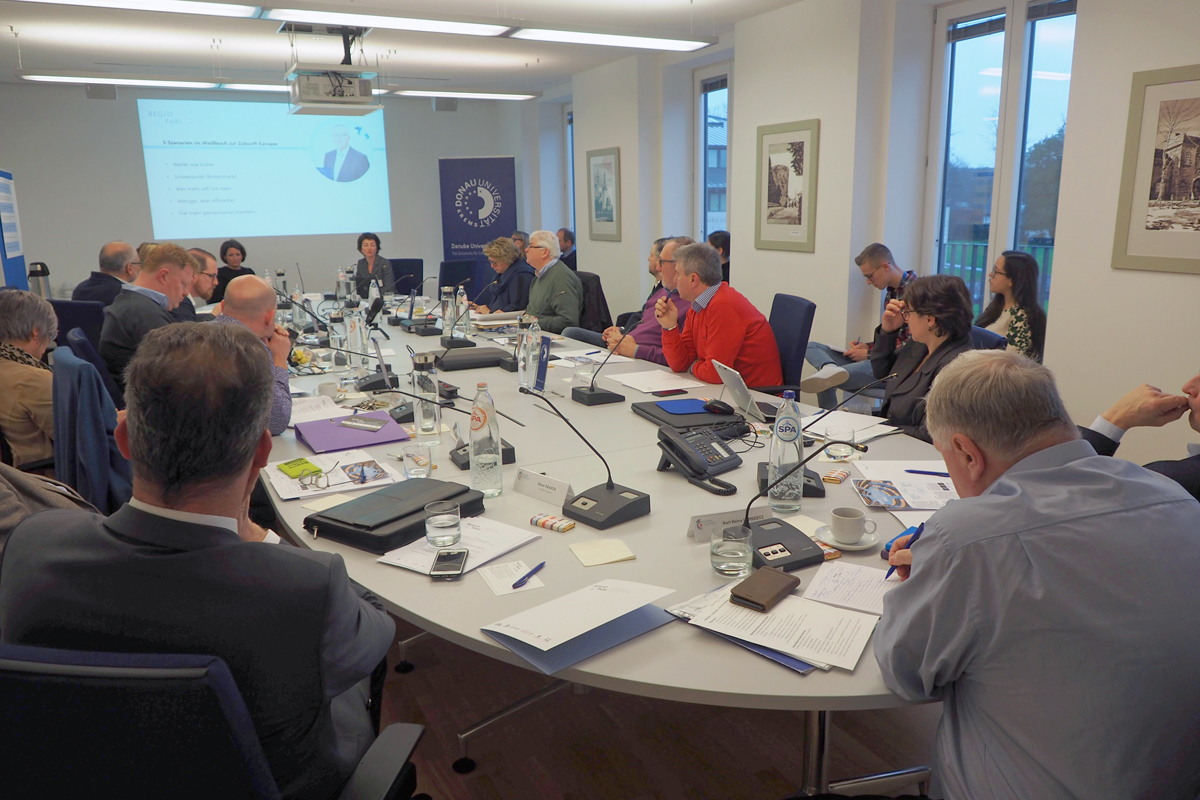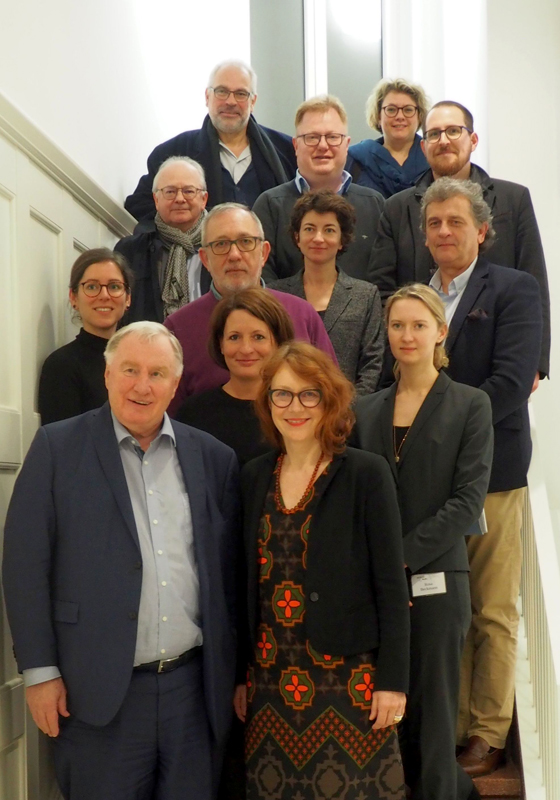On 2 March 2020, the international research project REGIOPARL | Regional Parliaments Lab visited the Parliament of the German-speaking Community of Belgium in Eupen. The project team of Danube University Krems and the European Democracy Lab at the European School of Governance in Berlin has carried out the REGIOPARL event series on the future of Europe in numerous regional parliaments in Europe since 2019.
In May, the conference on the future of Europe will be launched at a European level, following the initiative of EU Commission President Ursula von der Leyen. "In regards to that, it is now particularly important to listen to the regional actors in what they have to say and to take this into account when negotiating," explains Dr. Sarah Meyer Dr. Sarah Meyer, political scientist at Danube University Krems and head of the research project. Creating a space for innovative thinking, enabling the members of parliament to contribute their individual ideas and visions on the future of Europe is the event's aim in regional parliaments, as the project manager outlines the workshop objectives.
Modern decision-making structures for the EU
The delegates discussed in the Parliament of the German-speaking Community of Belgium in Eupen their individual perspectives on a Europe of the future. Karl-Heinz Lambertz, the Parliament's President and until the beginning of 2020 President of the Committee of the Regions, emphasized the important role the EU's has in being the greatest success story of the second half of the 20th century, yet at the same time pointed to imbalances within the EU's existing decision-making structures and processes. Speaking of his conviction, President Lambertz sees groundbreaking developments as imminent in which no member state can solve global challenges on its own. Furthermore, he outlined the creation of a bicameral parliament involving regional parliaments and a European government as potential solutions to a vision of the EU's future.
The members of parliament contributed these and other perspectives on the future of Europe to the discussion held in the workshop. At the same time, it was repeatedly pointed out that a new narrative and concrete goals for the EU were needed. "The promise to maintain peace is no longer sufficient today. We have to make it clear why Europe is a necessity in people's everyday lives," said one of the participants. Alternative ways of distributing competences between the different political levels - regional, national, European or even global - were discussed in a highly controversial manner. In contrast, the delegates largely agreed in designing the EU's institutional structure as seamlessly linked to the question of allocating competences.
Touring 15 regional parliaments
The project team was extremely pleased with the outcome of the delegates’ intensive discussion and drew throughout a positive balance from the event in Eupen. "In the words of Hannah Arendt, today the thinking here was without a banister. We need precisely such thoughts which leave the usual fixed patterns of thinking aside, when negotiating the future of Europe", said University Professor Dr. Ulrike Guérot, Head of the Department for European Policy and the Study of Democracy at Danube University Krems, and the project’s initiator, which is carried out in cooperation with Forum Morgen. End of March, the REGIOPARL team plans to gather further regional contributions to the EU debate on the future at its next stop in Wallonia, Belgium. In the course of this innovative research project 15 regional parliaments in seven EU Member States shall be visited in total.
Contact
Dr. Sarah Meyer
More information
Tags

